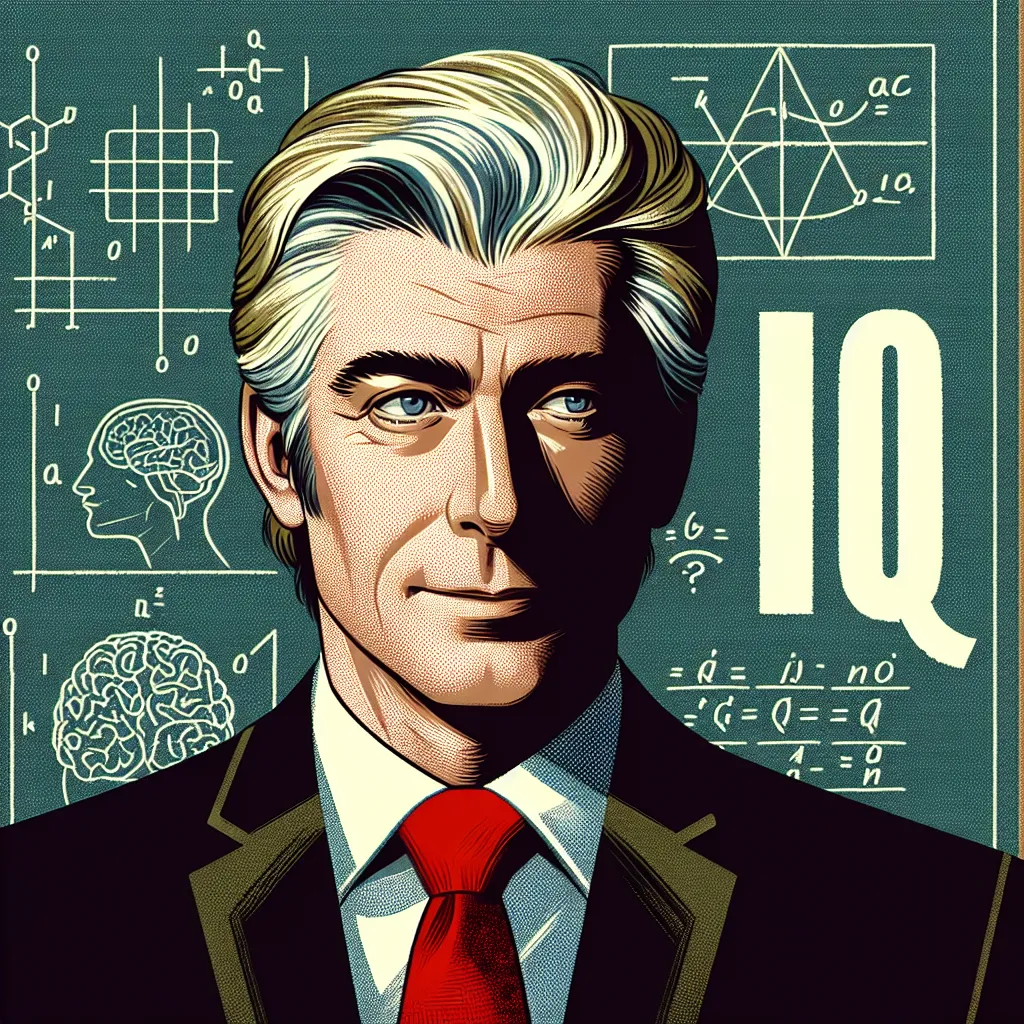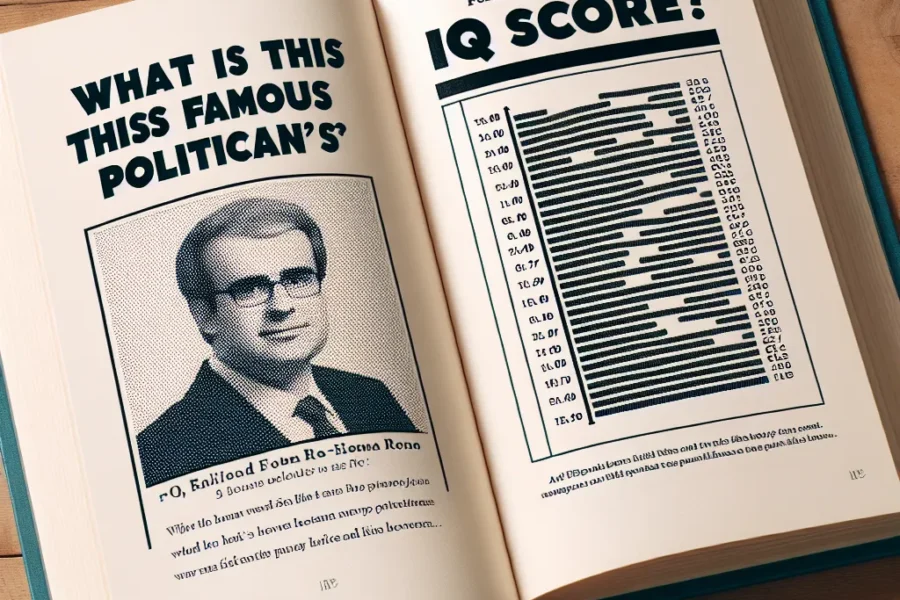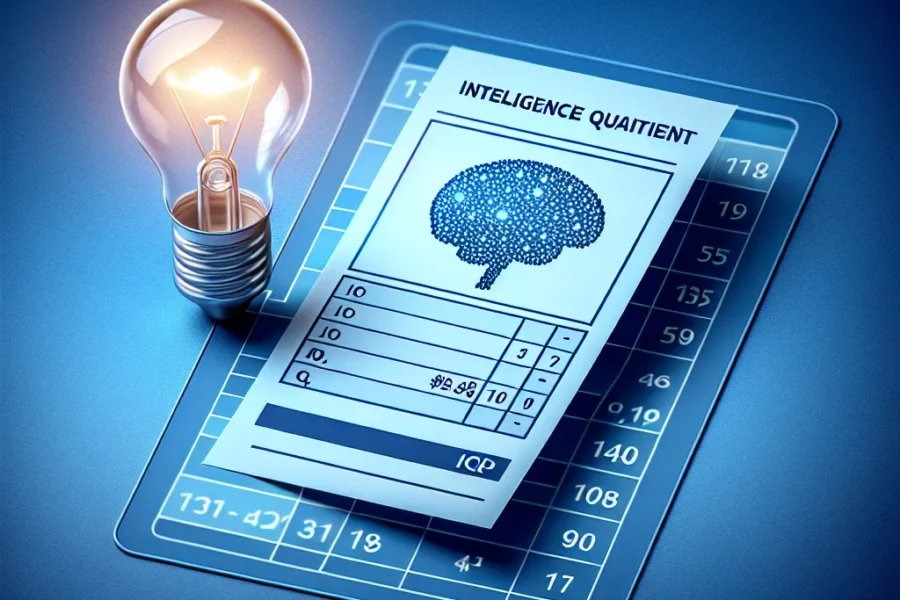What Was Donald Trump’s IQ Score?
Donald Trump, the 45th President of the United States, has always been a figure of immense controversy and interest. His intelligence, among many other attributes, has been both criticized and lauded by political commentators, analysts, and the general public. This has led many to wonder about his Intelligence Quotient (IQ) score—a metric often used to measure cognitive abilities and intellectual potential. What was Donald Trump’s IQ score? Is there any substantial evidence to support the myriad claims made about his cognitive abilities?
If you are looking for legitimate IQ Tests which pass the entry bar for Mensa, see our IQ Tests.
To begin with, it’s important to understand what an IQ score represents. An IQ score typically measures a range of cognitive skills, including logical reasoning, problem-solving abilities, verbal and mathematical proficiency, and spatial reasoning. The average IQ score hovers around 100, with scores above 130 often qualifying individuals for membership in Mensa, the high IQ society.
There has been a flurry of speculation about Trump’s IQ, stemming from his own statements, the statements of those close to him, and the general public’s fascination with the intelligence of high-profile individuals. Donald Trump himself has alluded to having a high IQ on multiple occasions. In a tweet from May 2013, Trump stated: “Sorry losers and haters, but my I.Q. is one of the highest—and you all know it! Please don’t feel so stupid or insecure, it’s not your fault.” This characteristic bravado has led many to question the veracity of his claims, spurring further investigation into potential evidence of his IQ score.
However, finding concrete, verifiable information about Donald Trump’s IQ score proves to be challenging. To date, no official documentation detailing his IQ test results has been publicly released. Consequently, any claims about his specific IQ score, whether high or low, are purely speculative and should be taken with a grain of caution.
Nevertheless, there are indirect methods of approximating Trump’s cognitive abilities by examining his academic and professional history. Donald Trump attended the Kew-Forest School for elementary education, and later the New York Military Academy (NYMA), finishing his education at the University of Pennsylvania’s Wharton School, one of the most prestigious business schools in the United States. His academic credentials do suggest a level of competence and intelligence.
Furthermore, Trump’s successful career in real estate and business, culminating in his ownership of the Trump Organization, showcases a practical, if not textbook, understanding of economics, marketing, and negotiation tactics. His rise within the entrepreneurial world—including his ability to navigate high-stakes deals, manage a large corporation, and maintain a personal brand—demonstrates a form of intelligence that, while different from academic intelligence, is nonetheless significant.
Still, critics are quick to point out that academic credentials and business success do not necessarily correlate with a high IQ. Jonathan Rochkind, a principal data scientist, argues that certain types of intelligence, such as emotional intelligence and social intelligence, are not adequately captured by IQ tests. These forms of intelligence play an essential role in fields like politics and business where interpersonal skills and emotional perception are key.
Trump himself has often claimed intellectual superiority over his political and business adversaries. In addition to the previously mentioned tweet, he has, on many occasions, asserted that his intelligence is one of his defining attributes. During the 2016 presidential campaign, Trump repeatedly brought up his educational background and suggested that his success in business was indicative of his superior intellect.
While some supporters echo his assertions, others remain skeptical. The lack of verifiable IQ test results makes it impossible to definitively state Trump’s IQ score. Given his extensive public career, there is a wealth of anecdotal evidence to suggest that he possesses significant intelligence—in certain areas at least. His adept use of media to cultivate a strong public persona and his ability to appeal to a large voter base exemplify his tactical and strategic thinking capabilities. Yet, skeptics argue that his frequent lapses in factual accuracy and controversial statements raise questions about the depth and breadth of his cognitive abilities.
The question then arises: should an IQ score be the sole metric by which we judge a leader’s capability? Critics of IQ tests often argue that these examinations fail to capture the full spectrum of human intelligence. Proponents of emotional intelligence (EQ), for example, posit that the ability to understand and manage emotions is crucial for effective leadership and can often outweigh the benefits of a high IQ in high-stress environments such as political office.
In conclusion, the intrigue surrounding Donald Trump’s IQ score is reflective of a larger societal obsession with quantifying intelligence. While Trump himself has claimed to possess a high IQ, no concrete evidence supports this assertion. Despite the lack of official IQ test results, Trump’s academic background and professional accomplishments suggest cognitive competence in several domains. Nevertheless, intelligence is multifaceted, and an IQ score—high or low—only offers a limited view of an individual’s overall intellectual abilities. As our understanding of intelligence continues to evolve, it is essential to recognize that leadership, ingenuity, and problem-solving often derive from a complex interaction of various types of intelligence, many of which cannot be boiled down to a single number.
The conversation surrounding Trump’s IQ score remains speculative, but it highlights a critical discourse on how we perceive intelligence in our leaders. While the debate is likely to persist, it serves as a reminder to approach claims about intelligence with a nuanced perspective that considers multiple dimensions of human cognitive and emotional capability.



Leave a Comment